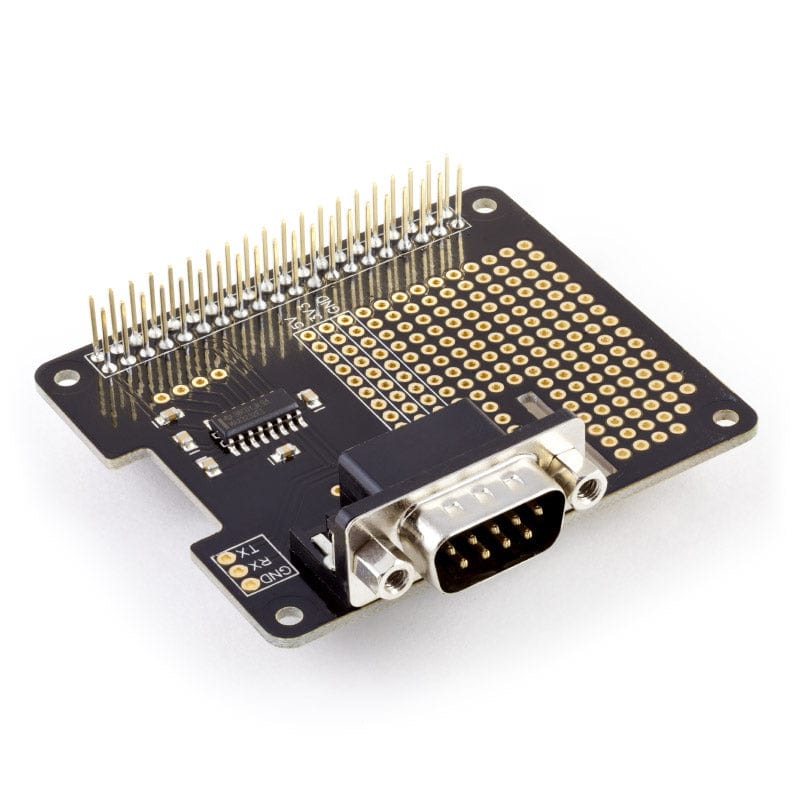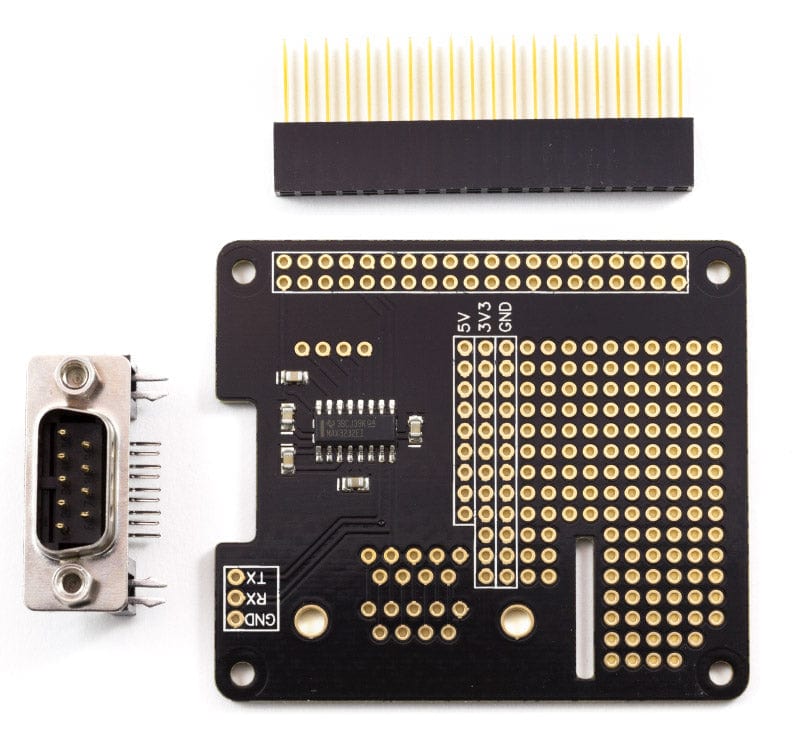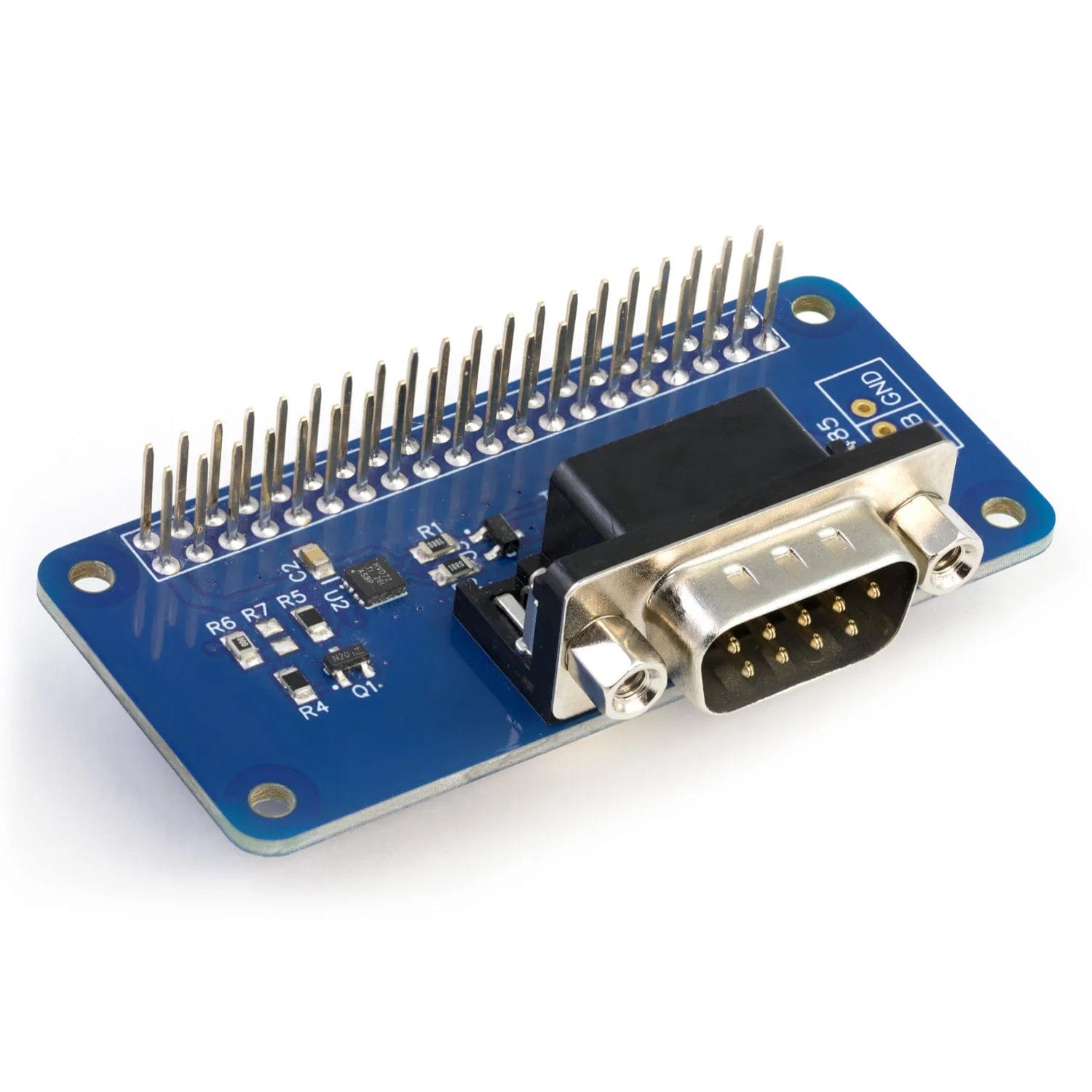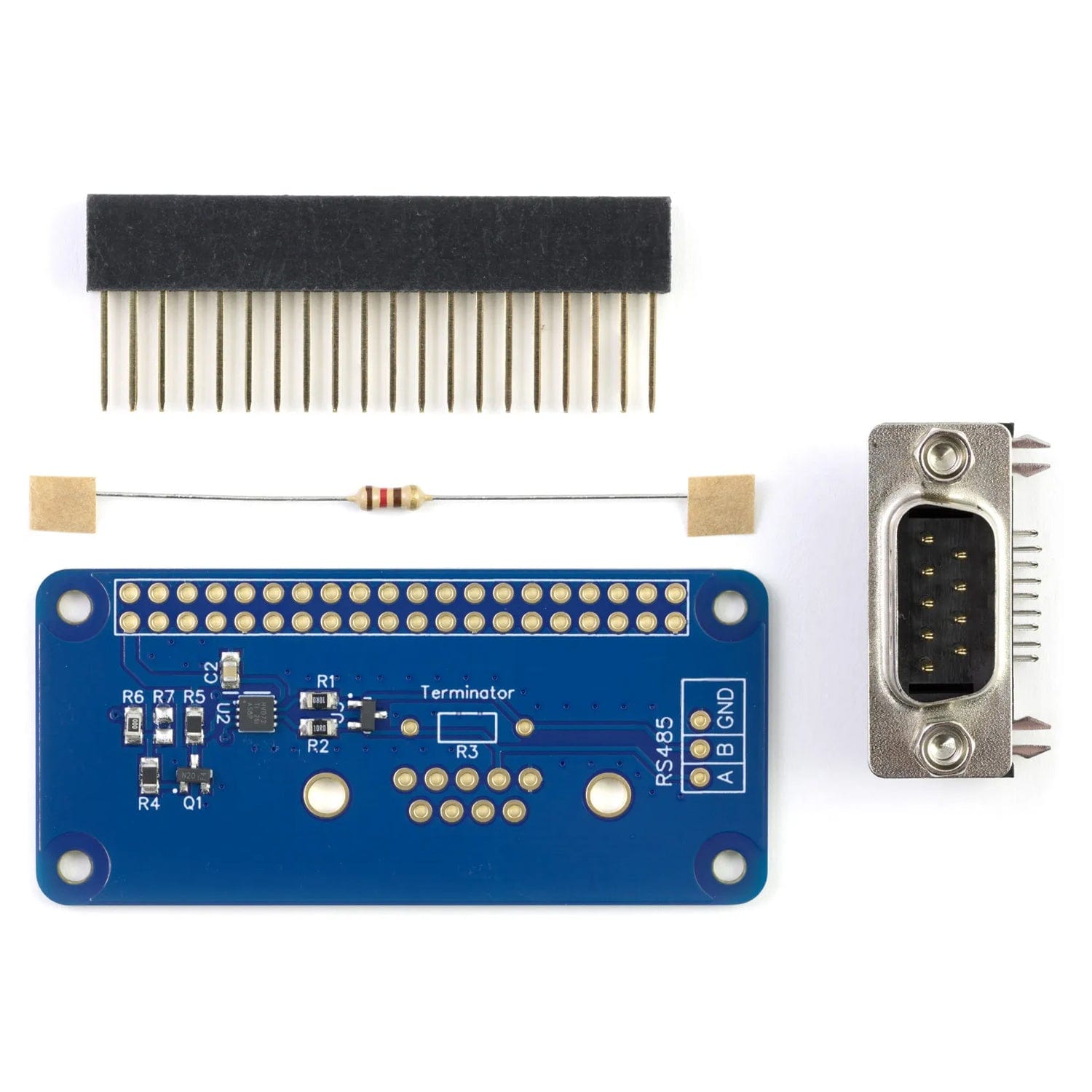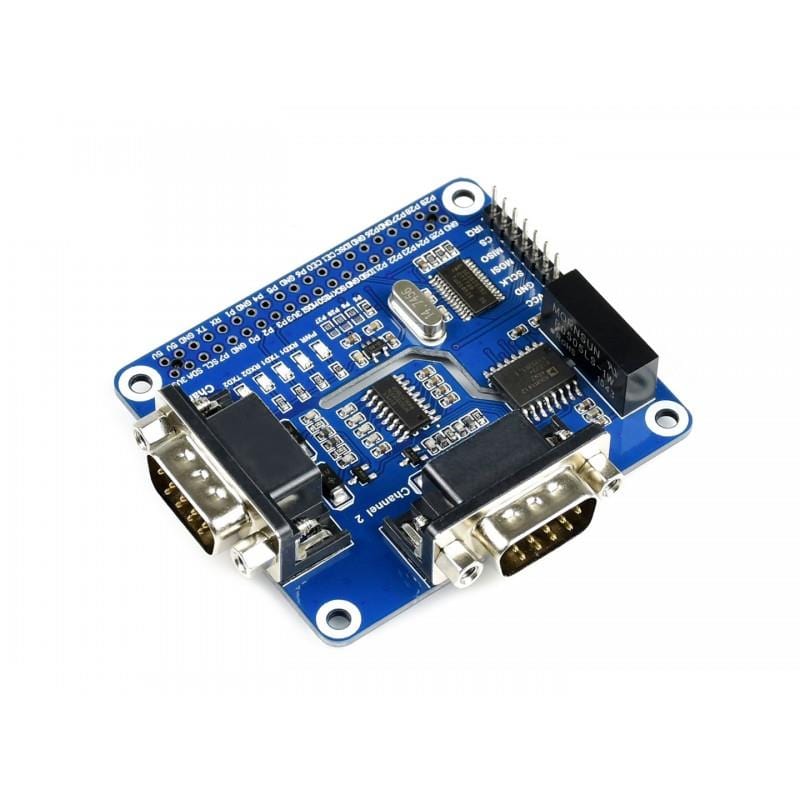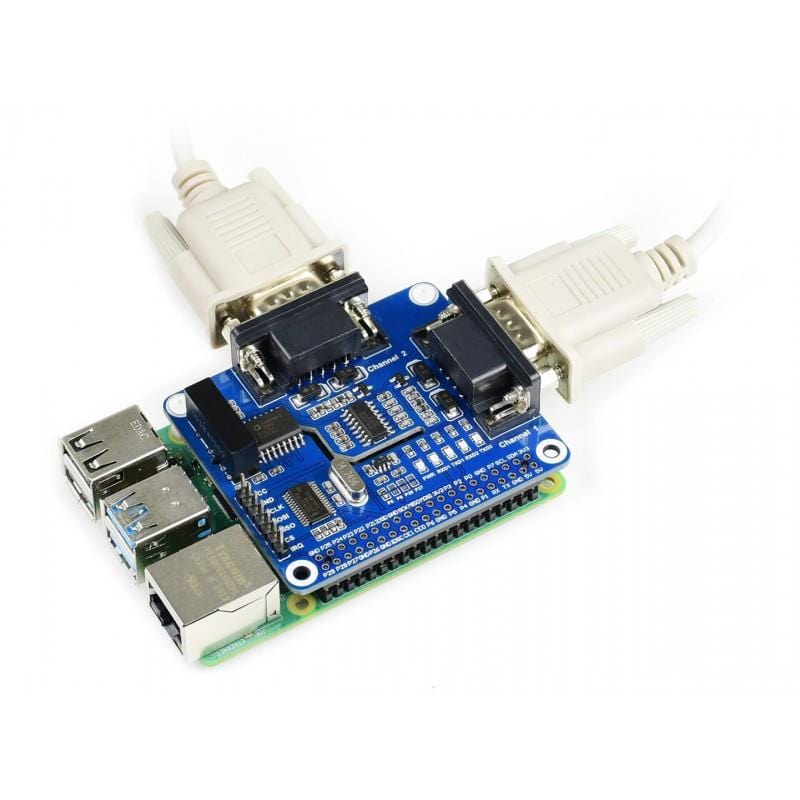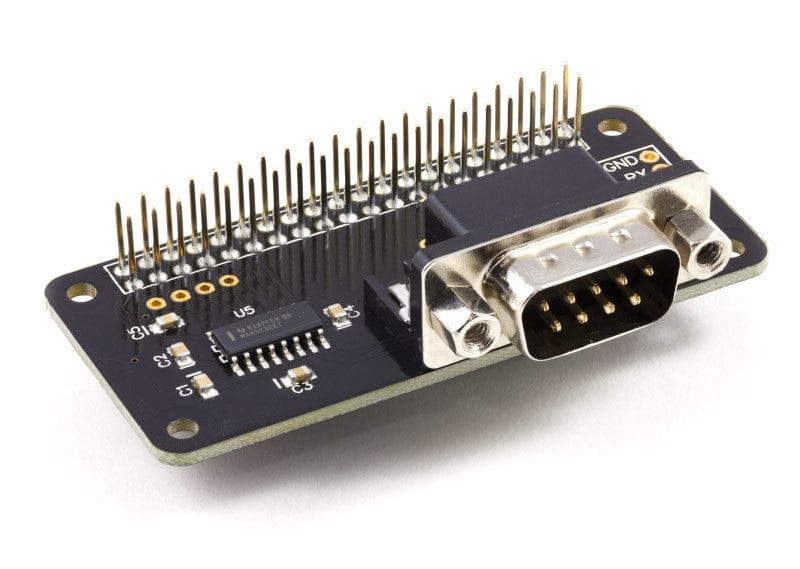
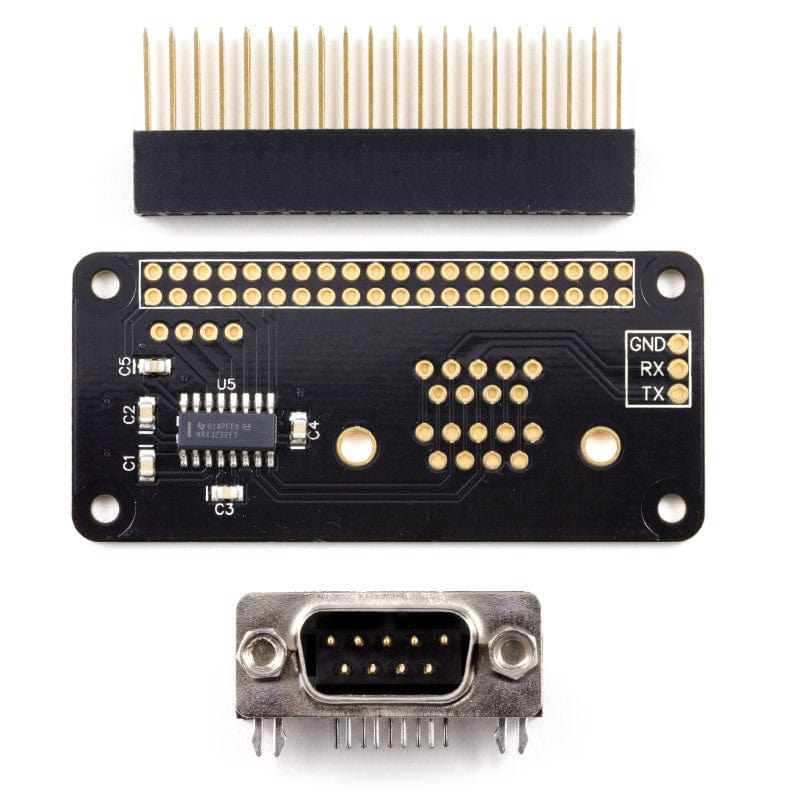
Login / Signup
Cart
Your cart is empty
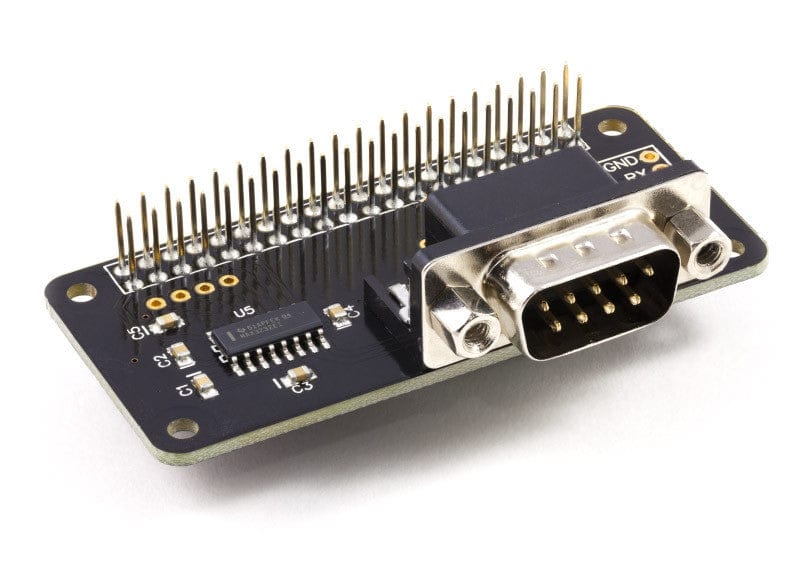
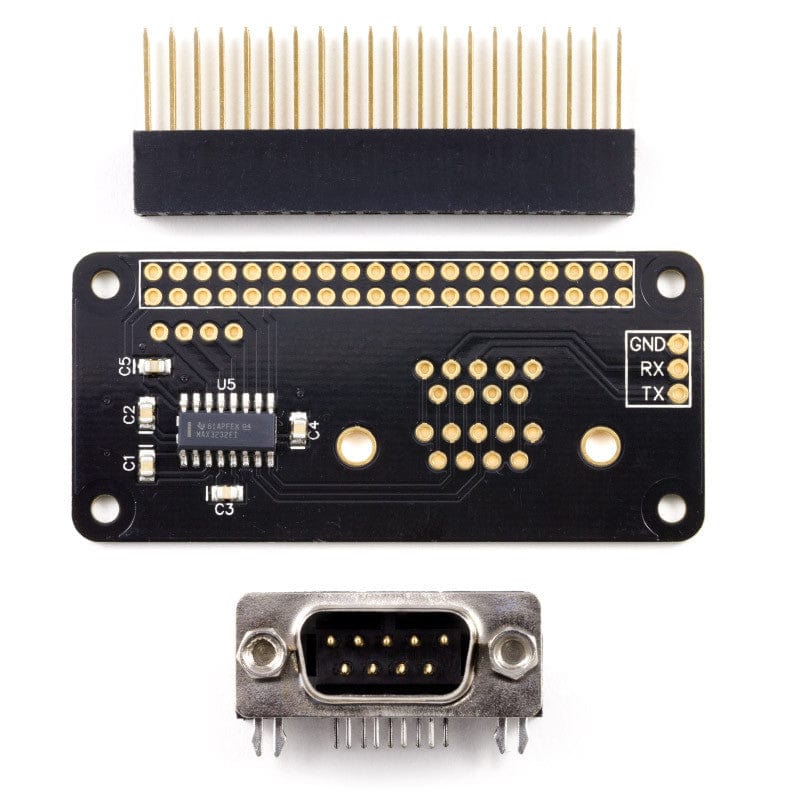
The Serial Pi Zero is a communication board supporting the RS232 serial protocol, designed for use on the Raspberry Pi and other compatible single-board computers.
Soldering required! This product comes unassembled and unsoldered.
The RS232 port is connected to the UART port on the Raspberry Pi using a MAX3232 interface. The MAX3232 IC converts the 3.3V UART port to RS232 voltages allowing communication with RS232 compatible devices over a DB9 serial cable or with the use of a null-modem cable the board allows terminal access with linux on the Raspberry Pi using a terminal application. The RS232 port can be accessed through the DB9 port or the solder points on the PCB.
An array of 2.54mm pitch holes with 3.3V and 5V connections are also provided on the PCB allowing you to build additional circuits on the board.
Please note that you can only use one Serial Pi board on a Raspberry Pi. if stacking with other boards we recommend putting the Serial pi at the top of the stack due to the height of the DB9 connector.
| Raspberry Pi Model A | No |
| Raspberry Pi Model B | No |
| Raspberry Pi 1 Model A+ | Yes |
| Raspberry Pi 1 Model B+ | Yes |
| Raspberry Pi 2 Model B | Yes |
| Raspberry Pi 3 Model B * | Yes |
| Raspberry Pi Zero | Yes |
*You need to use the latest Raspbian Jessie release and disable the built in Bluetooth to use the Serial Pi Plus on the Raspberry Pi 3, see our KB page for the config changes needed.
The RS232 port on the Serial Pi Zero can be accessed through the male DB9 socket or the solder points on the PCB. The DB9 socket is configured as a master socket like you will find on desktop computers allowing you to connect external serial devices with a standard RS232 cable.
The pin-out connections for the RS232 port are shown below:
|
DB9 connector as viewed from the front of the Serial Pi Plus |
The RS232 port can be used for remote terminal connections on the Raspberry Pi allowing remote access and control without the need for an ethernet connection. In order to connect the Serial Pi to a desktop computer you will need to use a Null-Modem cable. A wiring diagram for making a Null-Modem cable can be found below. For details on configuring the RS232 communication on the Raspberry Pi visit our knowledge base.
| Connector 1 | Connector 2 | Function |
| 2 | 3 | Rx ? Tx |
| 3 | 2 | Tx ? Rx |
| 5 | 5 | Ground |
Configuring the RS232 communication on the Raspberry Pi
The Serial Pi Zero is supplied with the 40 pin GPIO connector and the DB9 connector unsoldered.
Before using the Serial Pi Zero you will need to solder both connectors onto the PCB. We suggest soldering the 40 pin GPIO connector first and then the DB9 connector.
To make assembly easier we have designed a PCB header assembly jig which you can download and print.
Download and print our PCB Header Assembly Jig to hold your circuit board when soldering the header pins.



